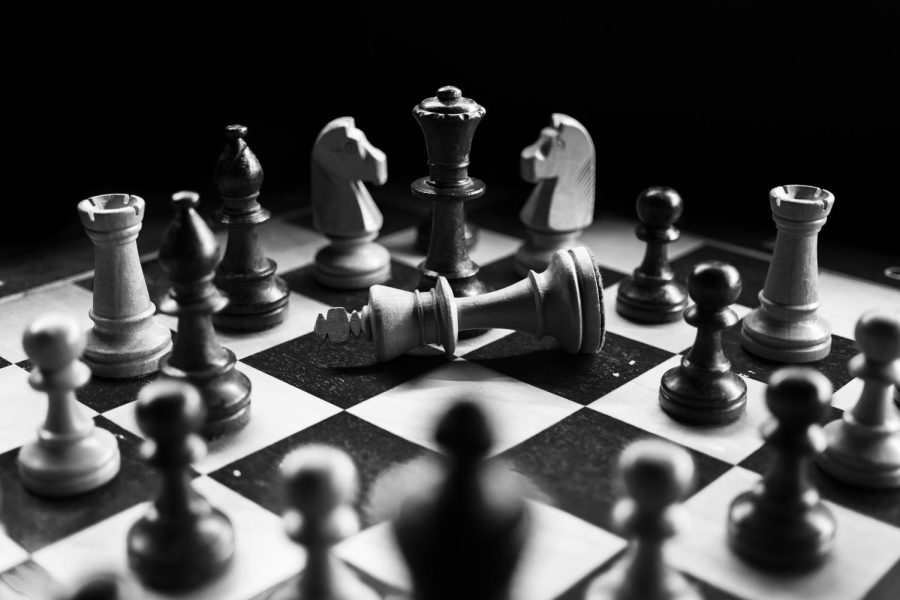The truth behind chess: A dangerous game
The correlation between professional chess players and a break of sanity is something that continues to be studied today.
February 28, 2023
As the famous Albert Einstein once said, “Chess holds its master in its own bonds, shackling the mind and brain so that the inner freedom of the very strongest must suffer.”
While chess can serve as a fun pastime, the extensive list of players destroyed by the game itself, passed down through chess circle lore, unveils how serious it can become. William Steinz was seen erratically talking into wireless phones and claimed he won a chess match against God, and Carrlos Torre was rumored to have a mental breakdown. The game not only requires the utmost intelligence, but an obsessive desire to win, praying for the downfall of the opponent.
Bobby Fischer, another erratic chess victor, quickly rose through the ranks after winning the U.S. Chess Championship at 14 years old, and was the first American to win the World Chess Championship.
Fischer devoted his entire being to the game of chess, dropping out of high school at age 16 to study the game. His extreme dedication became well-known, and he spent every waking moment inspecting a chess board.
The American public was transfixed by his youth and brilliant playing. He was seen as a symbol of victory after defeating a Soviet opponent in 1972, in what is known as the “Match of the Century.”
In 1975, Fischer suddenly declined a Soviet challenger, Anatoly Karpov, and mysteriously withdrew from chess for 20 years. He briefly emerged to defeat Karpov in a private match in 1992 before returning to his seclusion.
Throughout his career, Fischer was also involved in a string of controversy. He was recorded making anti-semitic remarks on live television (despite his mother being Jewish), deported by the U.S. for violating economic sanctions and publicly celebrated the 9/11 attacks on the World Trade Center.
Fischer passed away at age 64, coincidentally the same number of squares on a chess board.
Green Hope student Josh Elbertson (‘24), an experienced chess player, spoke with the GH Falcon about Bobby Fischer’s career. “Back then people [said] it was more a political game to show dominance about how one country is more intelligent than the other … before him [Bobby Fischer] the US didn’t have a lot of major chess wins,” he said.
As a member of the chess branch of the Green Hope Esports Club, Elbertson participates in weekly online chess tournaments. He said that chess requires extreme “cognitive ability” and “adaptability skills,” saying, ”You’re fighting yourself almost because you’re really just focused on the board, not the person you’re playing. It’s a battle in your own head.”
Elbertson attributed the extreme cognitive toll of the game as a potential factor in Fischer’s downfall. However, other variables such as the physiological “nature vs. nurture” debate, comparing the significance of innate biological factors to life experiences on a person, are also speculated to explain this correlation.
Mr. David Corsbie, an AP Psychology teacher at Green Hope, shared his insight on the correlation between chess players and being on the brink of insanity. “People who get transfixed with chess already have a predisposition to this idea. While chess can be a lot of fun for a lot of people, to become obsessed with it to the point where you’re reading books on strategies, you are occupying hours upon hours of your day with it, it takes a level of obsession,” Mr. Corsbie stated. “To have that level of obsession towards anything takes a certain individual.”
According to Corsbie, this predisposition to obsession, specifically with a game centered around individual intelligence and strategy, is what may have caused the downfall of many professionals like Fischer.
No scientific conclusions have been drawn about the addictive tendencies of the game, but as it continues to lead players into a state of insanity, individuals continue to question the effects of chess on the human mind.












































































